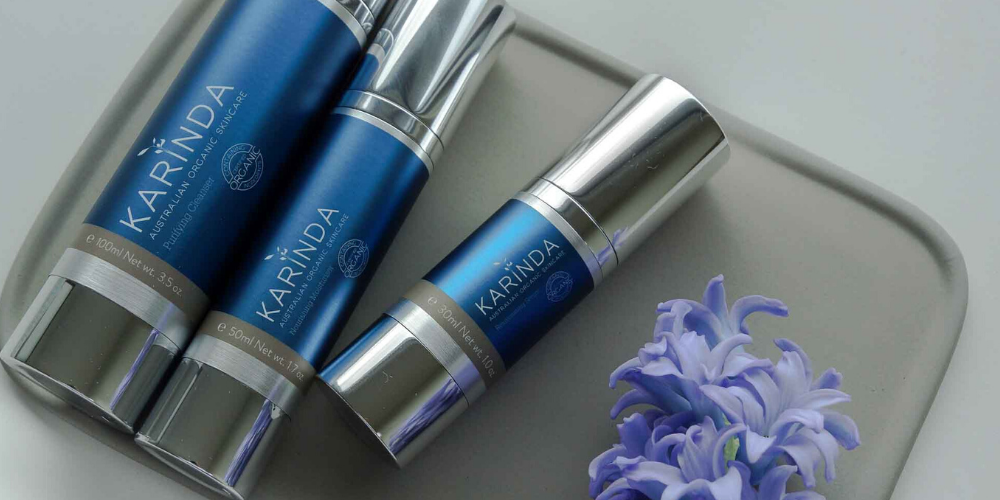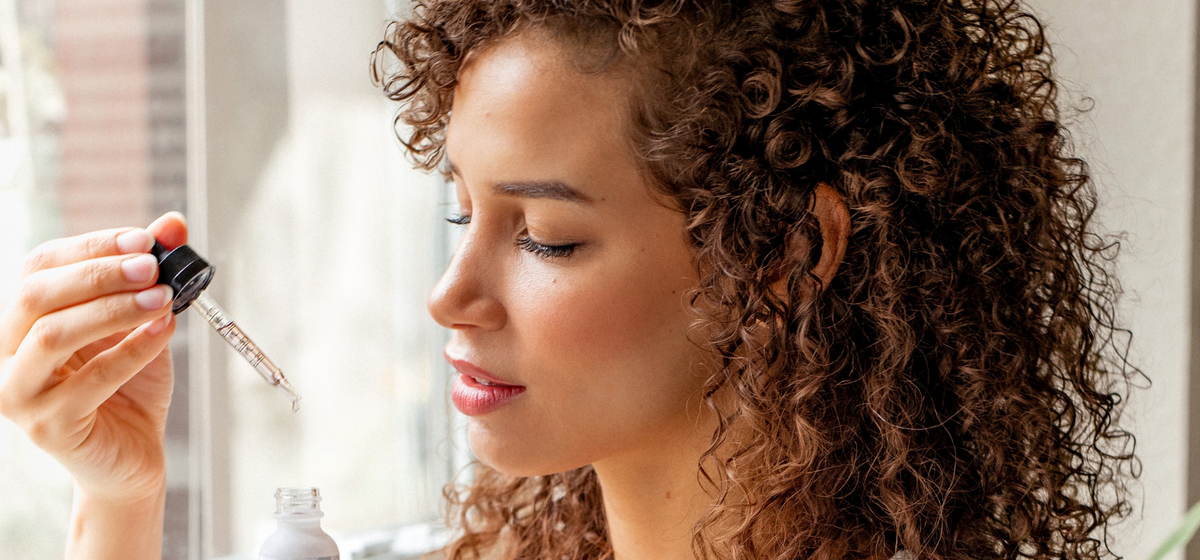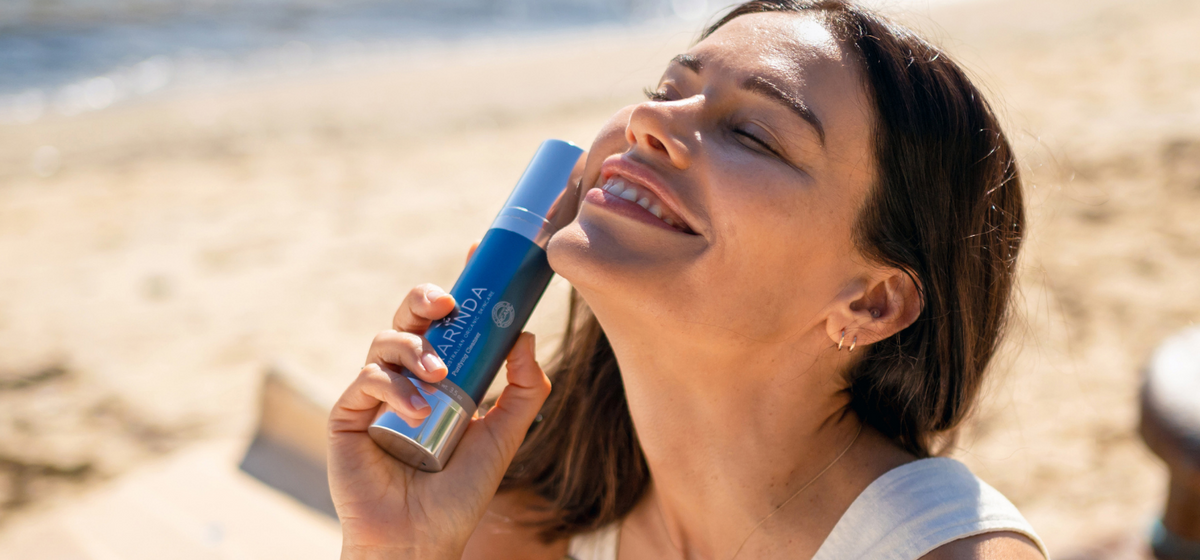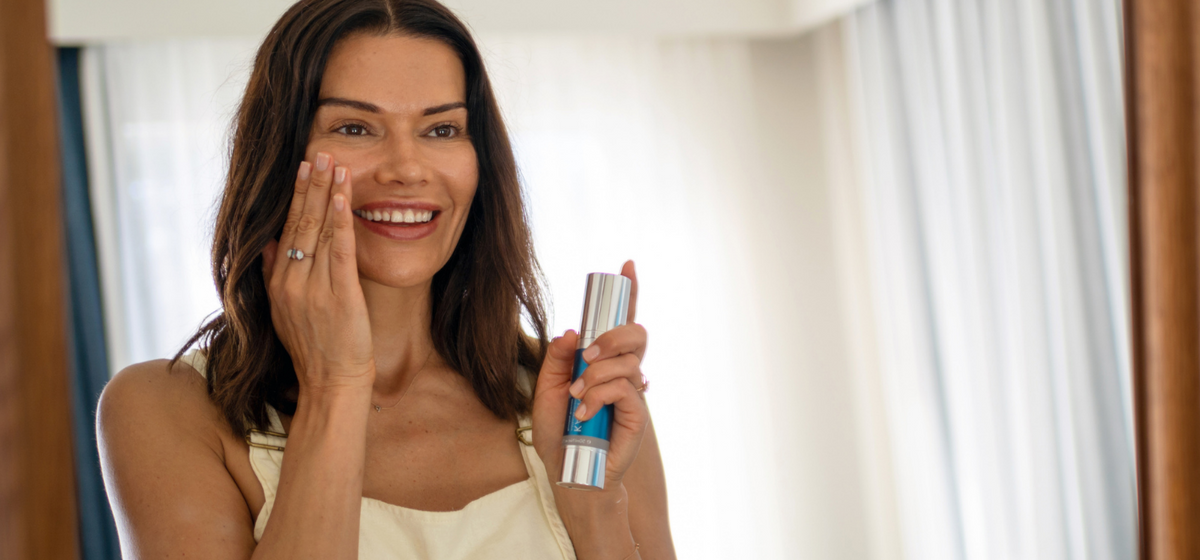Understanding Alcohol In Skincare

Is alcohol one of those ingredients you try to avoid? In skincare, we mean!
Thanks to those harsh alcohol-based astringent products that strip and dry the skin, alcohol has earned itself a not-so-stellar reputation as a skincare ingredient.
However, this bad rep isn’t always deserved as there are many varieties of alcohol that play beneficial roles in product formulations.
We’re clearing up the myth that all alcohol in skincare is bad and take a look at Benzyl Alcohol in particular and its role as a preservative in natural and organic skincare.
Not All Alcohols Are Created Equal
When you think of alcohol in skincare, do you think of drying, stinging toners you used to use as a teenager? This is one of the reasons alcohol, in general, earned itself a dubious reputation when it comes to skincare. Most of us had those toner experiences.
But, not all alcohol is created equal and each type deserves some investigation before jumping to conclusions.
There are 3 types of alcohol you’ll find in skincare
Simple alcohols
This family of alcohol is not-so-skin-friendly and includes methanol, ethanol, propanol, and denatured alcohol. They're used for various reasons in skincare products - to help formulas dry quickly, reduce excess oil or give the right texture to the formula.
These alcohols tend to be extremely harsh and will strip the skin of all-natural oils leaving it dry over time. They are created by using petroleum-based ingredients so not the kind of ingredients you really want to be absorbed into your skin!
Fatty alcohols
Did you know alcohol can be rich in healthy fats for the skin?
This group of alcohols includes cetearyl alcohol, cetyl alcohol, and isostearyl alcohol and are derived from natural sources like nut, coconut and vegetable oils and can actually hydrate skin. Fatty alcohols are commonly used in skincare as emulsifiers which help give formulations a thick, rich texture.
Aromatic Alcohols
Aromatic alcohols are derived from essential oils and include benzyl alcohol (the most common aromatic alcohol) and phenethyl alcohol.
They are considered to be safe in small doses and, in the world of skincare, are used to fragrance or preserve formulations. Benzyl alcohol also contains some antioxidant properties, and antioxidants protect against free-radical damage.
Benzyl Alcohol
We’re shining the ingredient spotlight on Benzyl Alcohol here to dive a little deeper into the role it plays in preserving natural and organic skincare formulations.
It’s a naturally occurring alcohol derived from plants including jasmine and ylang ylang and for this reason, many natural and organic skincare brands choose it as a preservative in their formulations. (More on preservatives in a moment!)
Benzyl Alcohol has been deemed as safe for use in foods by the US Food and Drug Administration and is an approved preservative under the COSMOS Organic Certification criteria.
While it’s true that if used in high doses benzyl alcohol may cause some skin irritation, when used in the correct concentration it is safe and unlikely to cause an adverse reaction.
Of course, we always recommend doing a patch test of any product you’re trying for the first time.
In Karinda formulations, we use Benzyl Alcohol as part of the natural preservative system called Geogard 221 which has been approved by the COSMOS Organic Certification criteria.
Why Water-Based Skincare Needs Preservatives
The purpose of preservatives in any product - from skincare and cosmetics to food is to maintain the integrity of the product by preventing the growth of bacterial and fungal microorganisms.
There is a rather big myth that has been perpetuated in the beauty industry that natural and organic products shouldn’t contain any preservatives at all - that all preservatives can be harmful and are sometimes not even necessary.
But the bottom line is this - when it comes to your skincare if the formulation contains water or water-based ingredients (for example, aloe vera) the product needs a preservative.
Without it, your organic and natural water-based skincare products would need to be treated like any other highly perishable item - such as milk.
Basically, kept in the fridge and thrown out after a week!
It’s true that many allergies and reactions in the skin are caused by preservatives and fragrances in products, like alcohol, not all preservatives are created equal.
As mentioned earlier, we use the Geogard 221/ Cosgard preservative system which meets Ecocert and COSMOS standards, NaTrue Certified and Soil Association approved.
It is a multi-use, broad-spectrum preservative system that is a synergistic blend of an organic acid (Dehydroacetic Acid) and alcohol (Benzyl Alcohol) - both organic compounds which are accepted for use in natural cosmetics.
If you have any questions at all about preservatives or alcohol in skincare, we’re here to help!
Leave a comment below or get in touch on customercare@karinda.com
Leave a comment
Comments will be approved before showing up.
Also in News

3 Big Skincare Mistakes You Don't Want To Make

Active Ingredient Percentages: What You Need to Know


